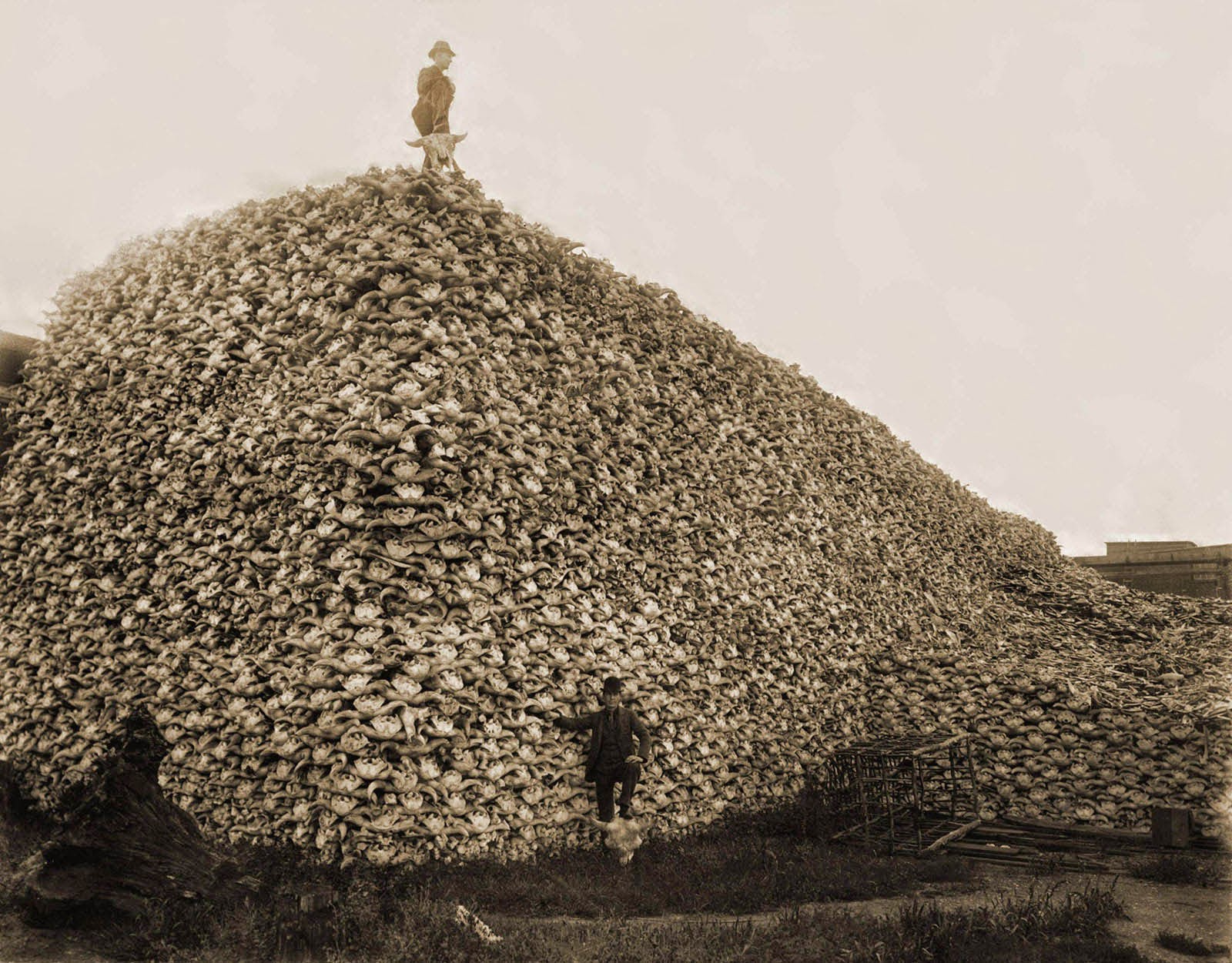We are still hunter gatherers at a core level no matter what veneer civilization applies. There simply isn't the clear cut distinction that some claim.
What do you mean by "core level"? How is that relevant to the modern day?
We are still hunter gatherers at a core level no matter what veneer civilization applies. There simply isn't the clear cut distinction that some claim.
Don't be silly, the population problem is not going to be solved by people giving up meat.
Nethertherless I hold that if required the majority would make the transition within 2 weeks.
I like to eat fish.
Cod mainly. The lobster or tuna is too expensive for me.

Did you actually read the part you put in bold?
So no regret.Tuna tends to have quite a bit of mercury in it anyway.
It's an interesting article that @Bob Lighthouse posted and the argument that some land is better used to produce animal protein than nothing at all is compelling, at least on the surface. I live in Arizona, and like Australia we have a lot of land that is not arable but is fine for cattle grazing. If we are only interested in maximizing the amount of human population we can sustain then yes - we should use that land to produce cattle. It's not so simple, though. Producing ruminants necessarily comes with a large increase in methane emission, which contributes greatly to global warming. Finishing cattle in feedlots is bad for the local environment too, given the amount of animal waste concentrated there which can pollute water supplies, etc. There is also the moral/ethical consideration that comes with murdering a sentient creature to produce food for ourselves.

What do you mean by "core level"? How is that relevant to the modern day?
How Hardwired Is Human Behavior?New fields of science don’t emerge in a flash, and evolutionary psychology—sometimes called modern Darwinism—is no exception. But over the past several years, evolutionary psychology as a discipline has gathered both momentum and respect. A convergence of research and discoveries in genetics, neuropsychology, and paleobiology, among other sciences, evolutionary psychology holds that although human beings today inhabit a thoroughly modern world of space exploration and virtual realities, they do so with the ingrained mentality of Stone Age hunter-gatherers. Homo sapiens emerged on the Savannah Plain some 200,000 years ago, yet according to evolutionary psychology, people today still seek those traits that made survival possible then: an instinct to fight furiously when threatened, for instance, and a drive to trade information and share secrets. Human beings are, in other words, hardwired. You can take the person out of the Stone Age, evolutionary psychologists contend, but you can’t take the Stone Age out of the person.
Survival occurs on an individual level, not just at a (thankfully hypothetical) global level, everytime someone runs out of fuel in the middle of nowhere.The majority of the survivors, sure.
There isn't anywhere near enough planet or wilderness left to support ~8 billion hunter-gatherers. World population before the Neolithic revolution was in the ballpark of 3-5 million people, and if everyone was forced to return to hunting and gathering, they would quickly fall to levels far closer to that than what we've got now, or even what's considered broadly sustainable now. Without significant agriculture, ~99% of people would need to die.
North American ruminant biomass was very high in times past, until:
A big part of any human population problem is how to feed all these people as well as the impact of people on their environment.
Using land to raise/feed meat animals is far less efficient than using that land to grow food that will be directly consumed by people.
The feed conversion rate for cattle, for example, is horrible...every pound of meat you get from a cow requires seven to ten pounds of feed. This also directly relates to the ecological impact and pollution involved in getting that meat.
Poultry, (farmed) fish, and insects are the animal proteins of the future. Beef and pork will still be around, but as populations continue to grow and the newly affluent demand those meats, prices will rise dramatically...at least until we can start growing synthetic meat cheaply.
Estimated bison population in the US prior to the 1500s was 30-60 million.
Current domestic cattle population in the US is 94 million.
Is that from Red Dead Redemption Online?North American ruminant biomass was very high in times past, until:

Is that from Red Dead Redemption Online?
(runs away and hides)
Are you unable to tell the difference between ripe and unripe fruit?Ok, I get what you are saying, however, hunting/gathering doesn't seem to be one of those hardwired things anymore, otherwise I don't know why virtually nobody does that nowadays.
Are you unable to tell the difference between ripe and unripe fruit?
Are you unable to spot movement out of the corner of your eye?
Are you unable to to spot a group of birds take off or a crow circling?
They are components which we have inherited which are critical to hunting and gathering.
Fish stocks have been ravaged too by over-fishing... While healthier than meat, it's still not helping over all.I like to eat fish.
Cod mainly. The lobster or tuna is too expensive for me.

